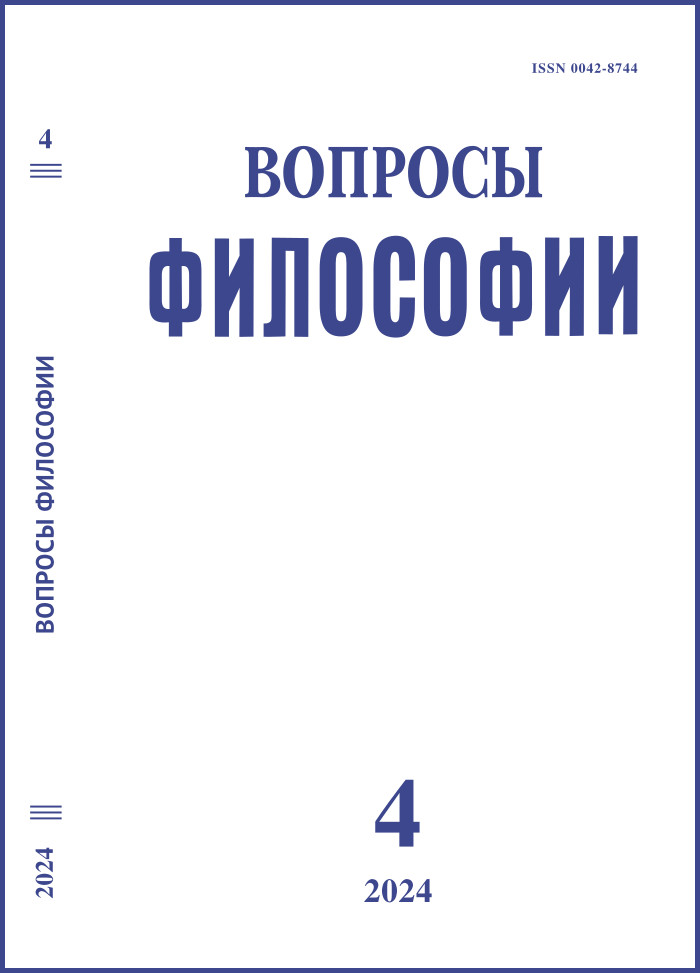Digital Ontology and Digital Hermeneutics
DOI:
https://doi.org/10.21146/0042-8744-2024-4-116-125Keywords:
weak ontology, understanding, context, Internet, digital ontology, digital hermeneutics, hermeneutic network, angeletics.Abstract
The article shows that the increasing use of information technologies and the Internet, on the one hand, hides, and on the other hand, makes us think about one ontological problem that accompanies their victorious march across the planet. The use of the Internet leads to what Vattimo calls a “weak ontology” or an “ontology of the weakening of Being”. Truth is now becoming relative not only to the language and beliefs of a community, but also to digital constructs; our cognition is consistent with them, not just with real objects. This new reality implies its perception through the prism of the information and communication sphere as a vast multidimensional territory of digital systems interacting with each other. They navigate it with the help of connections and meanings that often do not coincide at all with those used by human users themselves. This entails the application of new types of interpretation and understanding, previously not the object of study, and forming a new field of hermeneutics – digital hermeneutics, which can be defined as the general problematization of the supposed homology between (social) reality and its digital representations. Digital media and technology are indifferent to our actions, these actions are counted only insofar as they can be used to predict our future actions and/or the actions of people who for some reason are considered to be similar to us. A major implication of this is that individuals are always characterized and evaluated in relation to expected behaviors. This affects not only the way computers understand us, but also our self-understanding and our understanding of the world. It is concluded that the development of digital hermeneutics and the comprehension of its foundations leads to a change in the general traditional themes of hermeneutics. Thus, the hermeneutical circle, being one of the devices of philosophical hermeneutics, must inevitably be transformed into a hermeneutic network. As for the other key theme of hermeneutics, the relationship between the whole and its parts, it becomes an opportunity to have a general idea of the object of study. The evidence of this notion becomes problematic for digital hermeneutics – it can view the whole from different perspectives and not at the same time. In addition, if earlier it was believed that the use of the hermeneutical circle leads to a common understanding, then in digital hermeneutics, as shown in the article, this is fundamentally unachievable, since now the understanding depends on network structures that constrain and filter the collected data. Finally, another central idea of hermeneutics is changing, namely Gadamer’s “merging of horizons” – in the digital world, it is not only “merging” but also “linking”, which involves establishing a relationship between messengers (messenger programs). In this way, digital hermeneutics goes beyond the classical task of philosophical hermeneutics as a theory of interpretation and reveals its own hidden dimension in the form of message theory, or angeletics, since there is no interpretation without prior communication.

